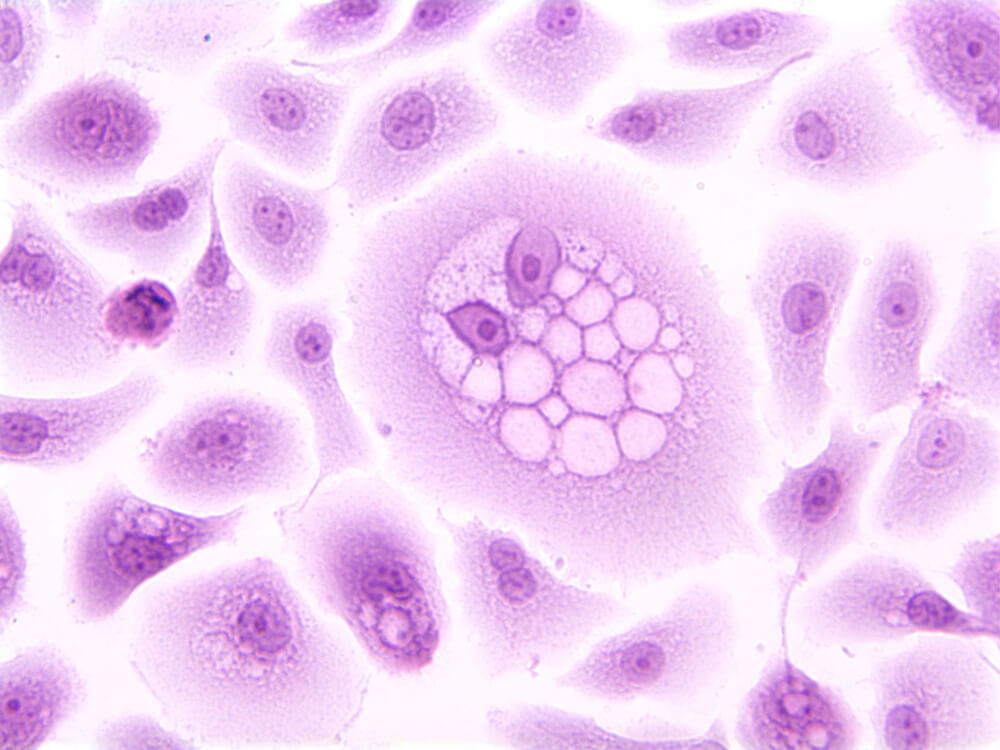- Cancer is not contagious.
- It is extremely rare for cancer to be passed from one person.
- There is an array of cancer-causing bacteria and viruses, such as the human papilloma virus (HPV).
While some may wonder, cancer is not contagious; a healthy person cannot catch cancer from a person who has the disease, nor can it be spread by close contact with a cancer patient.
Cancer cells are far different from infectious agents such as bacteria and viruses. A cancer cell is essentially a normal cell whose growth and division machinery has veered out of control. Should cancer cells from one person enter another person, that person’s immune system would recognize the invaders and destroy them. Bacteria cells and viruses, by contrast, have evolved specifically so they can survive and reproduce – for a period of time, at least – in people infected by them.
Rare circumstances
One rare circumstance in which cancer can be passed from one person to another involves organ or tissue transplantation. An individual who receives an organ or tissue from a donor who had cancer in the past has a slightly increased risk of developing a transplant-related cancer. This is less due to the presence of cancer cells in the transplanted tissue than to the immune-suppressing drugs taken by transplant recipients. Such drugs reduce the chances that the recipient’s immune system will reject the newly implanted tissue, but they also lower the body’s defenses against cancer.
Even so, the risk is extremely low – about two cases of cancer for every 10,000 organ transplants, according to the National Cancer Institute (NCI). (To reduce the odds of cancer transmission, doctors avoid the use of organs or tissue from people with a history of cancer.)
Read More:
Pregnant women
Even if a pregnant woman has cancer, the chances that the cancer will pass directly to the fetus are very remote. Some cancers can spread from the mother to the placenta (the organ connecting the mother to the fetus), but rarely to the fetus itself. There have been a few, rare cases in which leukemia and melanoma skin cancer have spread to the placenta and fetus, according to the NCI and published reports.
Cancer-causing bacteria and viruses
While cancer itself generally isn’t contagious, an array of cancer-causing bacteria and viruses are. These include:
- The human papilloma virus (HPV), which is linked to cancers of the cervix, vagina, vulva, penis, anus, and some cancers of the mouth, throat, and neck
- The bacterium Helicobacter pylori, which can give rise to certain gastric cancers
The HPV vaccine can sharply reduce the risk of cancers associated with the virus. Infection by the hepatitis C virus can, if not treated, lead to liver cancer; and HIV-positive individuals infected by the Kaposi sarcoma-associated herpesvirus are at high risk for Kaposi sarcoma, a cancer that develops in cells that line lymph or blood vessels.

In the animal kingdom, scientists have documented several examples of transmissible cancers. One involves Tasmanian devils, which develop facial tumors that are invariably fatal. The disease is spread when a tumor-carrying devil bites another devil in the face during a fight for food. The disease is thought to spread because of a uniformity in the animals’ immune system – a result of excessive inbreeding. Another example is canine transmissible venereal tumor, a cancer in dogs that is transmitted during mating. Recently, researchers have discovered widespread cancer transmission in lower metazoans such as soft-shell clams.

This is, and has been, a topic of much debate.